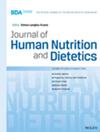Exploring Patient Mealtime Experience in an Acute Care Setting Using the Modified Austin Health Patient Mealtime Experience Tool
Abstract
Aims
Malnutrition is prevalent in Australian hospitals, affecting 30%–40% of inpatients. Enhancing patient mealtime experience is a recognised strategy to support improved dietary intake and clinical outcomes. Yet, there is little published data on mealtime experience in acute hospital settings in Australia. This study aims to capture patient mealtime experience in an acute care setting at a regional Australian hospital, using a modified version of the Austin Health Patient Mealtime Experience Tool.
Methods
A cross-sectional study was undertaken across six acute care wards at Bendigo Health between July and September 2024. Patient mealtime experience was explored through interviewer-administered surveys, including 32 Likert scaling items and 6 open-ended responses. Descriptive statistics were used to analyse quantitative data, whilst deductive thematic analysis was applied to qualitative data to describe mealtime experience.
Results
Eighty-one patients participated in the study. Patients were most dissatisfied with food quality, particularly sensory characteristics and variety, in both the quantitative and qualitative results. Patients were most frequently satisfied with staff interactions (90% ‘always’ or ‘often’ positive), although the qualitative results highlighted insufficient mealtime care. The physical environment was generally highly rated, with a majority of patients (> 70%) reporting that noise, visitors, room surroundings and smells and odours ‘rarely’ or ‘never’ impacted food intake. The food ordering system was rated favourably, with 89% of participants rating meal timing as ‘always’ or ‘often’ positive and 73% rating meal accuracy as ‘always’ or ‘often’ satisfactory. However, qualitative results revealed usability issues related to the electronic meal ordering system. Finally, qualitative responses identified nutrition impact symptoms as a barrier to mealtime experience and intake.
Conclusion
Food quality, sufficient mealtime care, management of nutrition impact symptoms and improving usability of electronic ordering systems are areas highlighted for improvement in mealtime experience. Addressing these factors through targeted quality improvement initiatives can enhance mealtime satisfaction and support nutritional intake. Integrating patient perspectives into service planning is essential for fostering patient-centred hospital foodservices and improving patient outcomes.

 求助内容:
求助内容: 应助结果提醒方式:
应助结果提醒方式:


